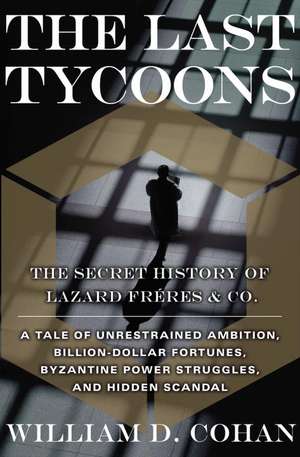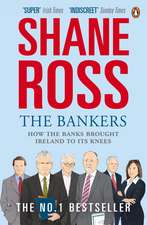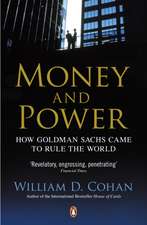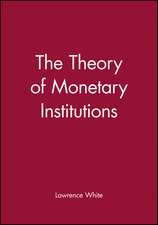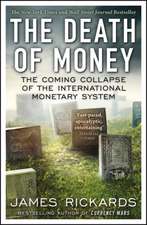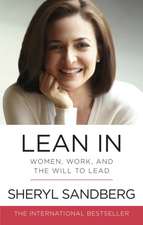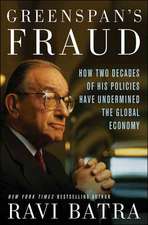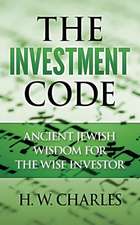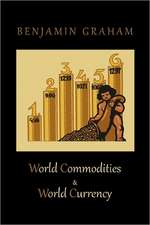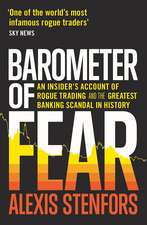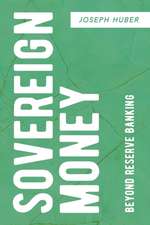The Last Tycoons: The Secret History of Lazard Freres & Co.
Autor William D. Cohanen Limba Engleză Hardback – 31 mar 2007
Wall Street investment banks move trillions of dollars a year, make billions in fees, pay their executives in the tens of millions of dollars. But even among the most powerful firms, Lazard Frères & Co. stood apart. Discretion, secrecy, and subtle strategy were its weapons of choice. For more than a century, the mystique and reputation of the "Great Men" who worked there allowed the firm to garner unimaginable profits, social cachet, and outsized influence in the halls of power. But in the mid-1980s, their titanic egos started getting in the way, and the Great Men of Lazard jeopardized all they had built.
William D. Cohan, himself a former high-level Wall Street banker, takes the reader into the mysterious and secretive world of Lazard and presents a compelling portrait of Wall Street through the tumultuous history of this exalted and fascinating company. Cohan deconstructs the explosive feuds between Felix Rohatyn and Steve Rattner, superstar investment bankers and pillars of New York society, and between the man who controlled Lazard, the inscrutable French billionaire Michel David-Weill, and his chosen successor, Bruce Wasserstein.
Cohan follows Felix, the consummate adviser, as he reshapes corporate America in the 1970s and 1980s, saves New York City from bankruptcy, and positions himself in New York society and in Washington. Felix’s dreams are dashed after the arrival of Steve, a formidable and ambitious former newspaper reporter. By the mid-1990s, as Lazard neared its 150th anniversary, Steve and Felix were feuding openly.
The internal strife caused by their arguments could not be solved by the imperious Michel, whose manipulative tendencies served only to exacerbate the trouble within the firm. Increasingly desperate, Michel took the unprecedented step of relinquishing operational control of Lazard to one of the few Great Men still around, Bruce Wasserstein, then fresh from selling his own M&A boutique, for $1.4 billion. Bruce’s take: more than $600 million. But it turned out Great Man Bruce had snookered Great Man Michel when the Frenchman was at his most vulnerable.
The LastTycoons is a tale of vaulting ambitions, whispered advice, worldly mistresses, fabulous art collections, and enormous wealth—a story of high drama in the world of high finance.
Preț: 204.83 lei
Nou
Puncte Express: 307
Preț estimativ în valută:
39.20€ • 40.14$ • 32.61£
39.20€ • 40.14$ • 32.61£
Carte indisponibilă temporar
Doresc să fiu notificat când acest titlu va fi disponibil:
Se trimite...
Preluare comenzi: 021 569.72.76
Specificații
ISBN-13: 9780385514514
ISBN-10: 0385514514
Pagini: 742
Dimensiuni: 166 x 234 x 45 mm
Greutate: 1.12 kg
Editura: Doubleday Books
ISBN-10: 0385514514
Pagini: 742
Dimensiuni: 166 x 234 x 45 mm
Greutate: 1.12 kg
Editura: Doubleday Books
Notă biografică
WILLIAM D. COHAN, a former award-winning investigative newspaper reporter in Raleigh, North Carolina, worked on Wall Street for seventeen years. He spent six years at Lazard Frères in New York and later became a managing director at JP Morgan Chase. He lives in New York City and Columbia County, New York.
Extras
CHAPTER 1
“GREAT MEN”
Even among the great Wall Street firms—Goldman Sachs, Morgan Stanley, and Merrill Lynch—Lazard Frères & Co. stood apart, explicitly priding itself on being different from, and superior to, its competitors. For 157 years, Lazard had punched above its weight. Unlike other Wall Street banks, it competed with intellectual rather than financial capital and through a hard-won tradition of privacy and independence. Its strategy, put simply, was to offer clients the wisdom of its Great Men, the finest and most experienced collection of investment bankers the world had ever known. They risked no capital, offering only the raw Darwinian power of their ideas. The better the idea, and the insights and tactics required to achieve the result contemplated by it, the greater was Lazard's currency as a valued and trusted adviser—and the larger were the piles of money the Great Men hauled out of the firm and into their swelling bank accounts. The lucky few men—yes, always men—at Wall Street’s summit have always been portrayed as ambitious and brilliant on the one hand and unscrupulous and ruthless on the other. But the secret history of Lazard Frères & Co., the world’s most elite and enigmatic investment bank, twists parts of this conventional wisdom into knots of unfathomable complexity. The Great Men chronicled herein amassed huge fortunes—to be sure—but they refused to admit to anyone, least of all to themselves, that their pursuit of these riches led to relentless infighting. Instead they spoke, without irony, of being part of a Florentine guild and of advice whispered to heads of state and to CEOs of the world's most powerful corporations, while all the time attempting to preserve the mythical special idea that was Lazard. They also, to a person, craved an equally elusive chimera: the assurance that somehow, despite everything, they alone had remained virtuous.
But starting in the mid-1980s, the wisdom of Lazard’s Great Men strategy began to show its considerable age, especially when Lazard was compared with its better capitalized and more powerful and nimble foes. The firm’s numerous strategic missteps were exacerbated by the increasingly titanic generational struggle inside Lazard between the likes of Felix Rohatyn and Steve Rattner—superstar investment bankers and pillars of New York society—as well as by the bizarre behavior of the increasingly isolated and bitter Michel David–Weill, the French billionaire who controlled Lazard and fomented the struggle from his imperial lair. And at the climactic moment, Bruce Wasserstein, the supreme opportunist, came along to pick Michel’s considerable pockets. The decades of internal turmoil and paternalistic management led ultimately to the once–unthinkable: a Lazard Frères free from its founders, as a publicly traded company just like any other, its operational flaws and obscene profitability open to the world—its special cachet lost forever.
The story of Lazard has always been one of internecine warfare, calamity, and resurrection, proving definitively that the forces of “creative destruction”—in the Austrian economist Joseph Schumpeter’s famous observation—are alive and well to this day in American capitalism.
***
Of all Lazard’s Great Men, none was greater than Felix George Rohatyn. Felix was considered by many to be the world's preeminent investment banker. He was the man who saved, first, Wall Street and then New York City from financial ruin in the early 1970s. For some thirty years at the end of the twentieth century, he had unofficially presided over Lazard Frères, helping to transform it into Wall Street’s most prestigious, enigmatic, and mysterious investment banking partnership. But on one of those impossibly close days in our nation’s capital, in the summer of 1997, Rohatyn found himself at the end of his tenure at Lazard, testifying before a Senate subcommittee in hopes of obtaining ratification of his appointment to a position he had long maintained was beneath him.
“It is a great honor for me to appear before you today to seek your consent to President Clinton’s nomination of me to serve as the next American Ambassador to France,” the sixty–nine–year–old Felix told the Subcommittee on European Affairs of the Senate Foreign Relations Committee. “It is also a very emotional experience, for many reasons…I am, as you know, a refugee who came to this country from Nazi–occupied Europe in 1942. As long as I can remember, going back to those very dark days, being an American was my dream. I was fortunate to achieve that dream, and America has more than fulfilled all of my expectations. To represent, at this time, my adopted country as her Ambassador would be the culmination of my career; to have been nominated to represent my country in France, a country where I spent part of my childhood and with which I have had a lifelong relationship, both professional and personal, seems to me more than I could ever have hoped for.”
In truth, the thick–browed, beaver–toothed Felix had for more than twenty years campaigned relentlessly for more, much more. With absolute clarity of mind, he knew he deserved better than an ambassadorship, a position he once likened to that of butler. Felix was the Great Man of Lazard, Le Corbusier of the most important mergers and acquisitions, or M&A, deals of the second half of the twentieth century, the ultimate rainmaker and corporate confidant, who year after year single–handedly generated hundreds of millions of dollars in fees for himself and his partners, thereby controlling his colleagues through a delicious combination of fear and greed.
After all, who could possibly afford to disobey a man who put so much money into his partners’ pockets while taking far less than he was entitled to? When Felix called or wandered through Lazard’s spartan offices in One Rockefeller Center, his partners snapped to attention, dropped whatever they might be doing, and acceded to his every wish. As his deal–making prowess continued unabated over the years, he had somehow also found the energy to volunteer his precious time and incomparable insights to solve two of this country’s major financial crises of the second half of the twentieth century.
First, in the early 1970s, he worked round the clock to cobble together solutions that stanched the bleeding caused by the “back–office crisis” afflicting many of the largest old–line Wall Street brokerages. Through a series of nail–biting and courageously conceived mergers, Felix prevented the meltdown of a large part of the securities industry. Second, he is credited with almost single–handedly devising the financial rescue package that saved New York City from bankruptcy in 1975, standing tall against President Gerald Ford and his incendiary refusal to help. With these matters resolved satisfactorily, Felix became Hamlet, the lone voice, the Democrat in exile during the fallow years of Ronald Reagan and George H. W. Bush, exhorting the party faithful to action through his regular dispatches in the tony pages of the New York Review of Books, creating what became nothing less than the Rohatyn Manifesto. He courted the great intellectuals and leaders of the day in his genteel salon on Fifth Avenue and at his annual Easter egg hunts at his Southampton manse. He was the epitome of the Great Man.
By the time of Bill Clinton’s election in 1992, he not only wanted desperately to be secretary of the Treasury but believed he had earned it. Maybe he even was owed it. Indeed, some believe he had wanted the post as early as the Carter administration. Had Jimmy Carter been able to win another presidential election and had Felix been less critical of Carter in his writings, speeches, and interviews, he might have had a shot. But in 1980, Carter lost in a landslide to Ronald Reagan. So Felix had waited stoically through the two Reagan terms and that of the first Bush for the return of a Democrat to the White House. His moment had finally arrived, along with Clinton’s, in November 1992. Felix vigorously lobbied for the Treasury secretary post, through the clandestine channels that exist for such genteel advocacy and by manipulating the levers he had pulled for years with the dexterity of a maestro: his legendary orchestration of the notoriously fickle troika of corporate chieftains, New York society, and the press was the envy of every investment banker and corporate lawyer on the planet.
And yet Felix’s considerable efforts had fallen short, for reasons that begin to reveal the many nuances and contradictions of one of America’s most powerful—and least scrutinized—men. When Clinton came to see Felix in his diminutive, picture–lined Lazard office during the election season of 1992, the Napoleonic Rohatyn received him coolly and enigmatically, having for some reason failed to fully perceive the Clinton juggernaut. He chose instead to lend his considerable prestige to the third–party candidate H. Ross Perot, the Texas billionaire and founder of EDS Corporation, who was his former client.
Felix had first met Perot in the early 1970s at the urging of John Mitchell, Richard Nixon’s first attorney general. Mitchell thought Perot would be helpful to Felix in solving the New York Stock Exchange crisis. Felix then brokered a deal whereby Perot invested what turned out to be close to $100 million in DuPont Glore, a failing old–line brokerage. Perot’s investment at the time represented the largest amount of money ever invested by a single individual in a Wall Street firm. DuPont Glore failed anyway, and Perot lost his investment. Yet his friendship with Felix blossomed. Felix served on EDS’s board of directors and advised Perot on the sale of EDS to General Motors. He rewarded Perot’s loyalty by supporting him through much of the 1992 presidential campaign—a point Felix tries to parse today, in hindsight. But Perot’s presidential aspirations were predictably unsuccessful, as were, not surprisingly, Felix’s own to become secretary of the Treasury after Clinton’s election.
Even though many important and influential people believed Felix to be immensely deserving, through a combination of hubris, bad luck, and political miscalculation he didn't get the prize. Clinton turned first to Senator Lloyd Bentsen and then to Robert Rubin, the former co-CEO of Goldman Sachs—a man twenty years Rohatyn’s junior with nary a trace of his civic accomplishments or reputation. But Rubin had been doing something that Felix had not been willing to do, that Felix had felt uncomfortable doing: Rubin had raised millions of dollars for Clinton and for the Democratic Party. There are rewards for that kind of thing.
In his memoir, In an Uncertain World, Rubin makes no mention of perceiving any competition with Felix for the Treasury job. But he does recount, with some frustration, Felix’s Great Man status and his preeminence as a banker. Rubin had hurt his back just prior to a board of directors meeting for one of his clients, Studebaker–Worthington, at which Rubin and Goldman were to play the dual role of board members and investment bankers. Rubin recounted how he attended the Saturday board meeting, at the request of the CEO, Derald Ruttenberg, lying flat on his back, as the board met to consider whether to sell the company.
“I thought,” Rubin recalled, “If I don’t go, he’ll hire Felix Rohatyn—the renowned investment banker from Lazard whom Ruttenberg had also mentioned. I couldn’t walk for more than a few yards at the time, or even sit, but I went to Ruttenberg’s office and lay on his window seat. We got the business, though much to my dismay, Ruttenberg gave Felix part of the fee. (It’s more than twenty–five years later, but I still remember the amount.) Ruttenberg said he wanted Felix to be satisfied, given his importance in the world.”
His importance in the world. Rubin, as capable of flattery as the next monumentally successful investment banker, was simply and matter–of–factly acknowledging Felix’s canonical position among the power elite of merger advisers, a rare breed of peacock the brightness of whose plumage had been known to fade from year to year.
Regardless of the decade, Felix has been a constant atop the leaderboard of M&A advisers. Even today, at seventy–eight, his diplomatic career complete, he still advises powerful CEOs on their most important deals and receives millions of dollars in fees for his work.
At Lazard, Felix had come to personify the firm’s unique—and uniquely successful—business strategy of employing the smartest and most experienced investment bankers to offer ambitious corporate CEOs sagacious insight on how to do deals, and nothing more. No loans. No underwriting of debt or equity (or barely any). No published research. No questionable off–balance–sheet financing “vehicles.” Only Great Men offering advice to the world's business leaders. There was a good deal of myth to this legend, of course, since as with any large group of people, the 80–20 rule applied to Lazard as well—with Felix among the 20 percent of the partners who produced 80 percent of the revenues.
But unlike his mentor, the tyrannical and legendary André Meyer, Felix found offering advice to clients exhilarating—and he was bored by management responsibilities. He often described Lazard as simply “a group of important people, giving important people advice.” Felix was proud to be solely an adviser whose wisdom was sought out internationally for cogent, insightful advice on mergers and acquisitions: nothing more, nothing less—and not a trace of apology for not being the top underwriter of junk bonds (a product he railed against) or equity offerings. No frustration with not being a private–equity investor. The Big Boys, a 1986 book by Ralph Nader and William Taylor, referred to Felix as “the interstitial man,” someone who gets in the middle of things. Raymond Troubh, a former Lazard partner, was one of many people quoted by Nader and Taylor about Felix.
“Felix is enveloping the world,” Troubh confided. “He is sort of the Henry Kissinger of the financial arena. He is stepping into politics as Kissinger is stepping into finance…But I don’t think his [public role] was a calculated decision. He never said, ‘I’m going to be prominent on the public scene.’ He wanted to be a great investment banker. That brought him into the eyes of the kingmakers in different arenas, in New York and Washington, and from then on his ability pushed him…I equate him with Kissinger, who I think is an outstanding example of a combination of brilliance, power and will to win. I put Felix in the same basket, exactly the same basket.” In his own interviews with Nader, Felix deflected the Kissinger comparison in a way that betrayed his hidden insecurities. “Oh, because we are foreign born,” Felix allowed. “Because we are negotiators. Also, we are friends. But Henry has wielded levers of power that I haven’t come close to.” In his response to Nader, Felix conveniently overlooked one important trait he shared—and shares—with Kissinger: an insatiable desire to control all that is written about him. Accordingly, Nader also dubbed Felix “the Teflon investment banker” for his ability to generate impressive amounts of fawning publicity that ignored some of his more questionable judgments.
For years, Felix preferred to think of himself more in the mold of his hero, Jean Monnet, today a relatively obscure French economist, but essential to the creation of the European Common Market. Monnet never held a post in any French government. “But he accomplished a great deal,” Felix told William Serrin of the New York Times in 1981. “I don't flatter myself into thinking I’m Jean Monnet. But I believe that ideas in themselves have great power, if you have a platform that has legitimacy.”
“GREAT MEN”
Even among the great Wall Street firms—Goldman Sachs, Morgan Stanley, and Merrill Lynch—Lazard Frères & Co. stood apart, explicitly priding itself on being different from, and superior to, its competitors. For 157 years, Lazard had punched above its weight. Unlike other Wall Street banks, it competed with intellectual rather than financial capital and through a hard-won tradition of privacy and independence. Its strategy, put simply, was to offer clients the wisdom of its Great Men, the finest and most experienced collection of investment bankers the world had ever known. They risked no capital, offering only the raw Darwinian power of their ideas. The better the idea, and the insights and tactics required to achieve the result contemplated by it, the greater was Lazard's currency as a valued and trusted adviser—and the larger were the piles of money the Great Men hauled out of the firm and into their swelling bank accounts. The lucky few men—yes, always men—at Wall Street’s summit have always been portrayed as ambitious and brilliant on the one hand and unscrupulous and ruthless on the other. But the secret history of Lazard Frères & Co., the world’s most elite and enigmatic investment bank, twists parts of this conventional wisdom into knots of unfathomable complexity. The Great Men chronicled herein amassed huge fortunes—to be sure—but they refused to admit to anyone, least of all to themselves, that their pursuit of these riches led to relentless infighting. Instead they spoke, without irony, of being part of a Florentine guild and of advice whispered to heads of state and to CEOs of the world's most powerful corporations, while all the time attempting to preserve the mythical special idea that was Lazard. They also, to a person, craved an equally elusive chimera: the assurance that somehow, despite everything, they alone had remained virtuous.
But starting in the mid-1980s, the wisdom of Lazard’s Great Men strategy began to show its considerable age, especially when Lazard was compared with its better capitalized and more powerful and nimble foes. The firm’s numerous strategic missteps were exacerbated by the increasingly titanic generational struggle inside Lazard between the likes of Felix Rohatyn and Steve Rattner—superstar investment bankers and pillars of New York society—as well as by the bizarre behavior of the increasingly isolated and bitter Michel David–Weill, the French billionaire who controlled Lazard and fomented the struggle from his imperial lair. And at the climactic moment, Bruce Wasserstein, the supreme opportunist, came along to pick Michel’s considerable pockets. The decades of internal turmoil and paternalistic management led ultimately to the once–unthinkable: a Lazard Frères free from its founders, as a publicly traded company just like any other, its operational flaws and obscene profitability open to the world—its special cachet lost forever.
The story of Lazard has always been one of internecine warfare, calamity, and resurrection, proving definitively that the forces of “creative destruction”—in the Austrian economist Joseph Schumpeter’s famous observation—are alive and well to this day in American capitalism.
***
Of all Lazard’s Great Men, none was greater than Felix George Rohatyn. Felix was considered by many to be the world's preeminent investment banker. He was the man who saved, first, Wall Street and then New York City from financial ruin in the early 1970s. For some thirty years at the end of the twentieth century, he had unofficially presided over Lazard Frères, helping to transform it into Wall Street’s most prestigious, enigmatic, and mysterious investment banking partnership. But on one of those impossibly close days in our nation’s capital, in the summer of 1997, Rohatyn found himself at the end of his tenure at Lazard, testifying before a Senate subcommittee in hopes of obtaining ratification of his appointment to a position he had long maintained was beneath him.
“It is a great honor for me to appear before you today to seek your consent to President Clinton’s nomination of me to serve as the next American Ambassador to France,” the sixty–nine–year–old Felix told the Subcommittee on European Affairs of the Senate Foreign Relations Committee. “It is also a very emotional experience, for many reasons…I am, as you know, a refugee who came to this country from Nazi–occupied Europe in 1942. As long as I can remember, going back to those very dark days, being an American was my dream. I was fortunate to achieve that dream, and America has more than fulfilled all of my expectations. To represent, at this time, my adopted country as her Ambassador would be the culmination of my career; to have been nominated to represent my country in France, a country where I spent part of my childhood and with which I have had a lifelong relationship, both professional and personal, seems to me more than I could ever have hoped for.”
In truth, the thick–browed, beaver–toothed Felix had for more than twenty years campaigned relentlessly for more, much more. With absolute clarity of mind, he knew he deserved better than an ambassadorship, a position he once likened to that of butler. Felix was the Great Man of Lazard, Le Corbusier of the most important mergers and acquisitions, or M&A, deals of the second half of the twentieth century, the ultimate rainmaker and corporate confidant, who year after year single–handedly generated hundreds of millions of dollars in fees for himself and his partners, thereby controlling his colleagues through a delicious combination of fear and greed.
After all, who could possibly afford to disobey a man who put so much money into his partners’ pockets while taking far less than he was entitled to? When Felix called or wandered through Lazard’s spartan offices in One Rockefeller Center, his partners snapped to attention, dropped whatever they might be doing, and acceded to his every wish. As his deal–making prowess continued unabated over the years, he had somehow also found the energy to volunteer his precious time and incomparable insights to solve two of this country’s major financial crises of the second half of the twentieth century.
First, in the early 1970s, he worked round the clock to cobble together solutions that stanched the bleeding caused by the “back–office crisis” afflicting many of the largest old–line Wall Street brokerages. Through a series of nail–biting and courageously conceived mergers, Felix prevented the meltdown of a large part of the securities industry. Second, he is credited with almost single–handedly devising the financial rescue package that saved New York City from bankruptcy in 1975, standing tall against President Gerald Ford and his incendiary refusal to help. With these matters resolved satisfactorily, Felix became Hamlet, the lone voice, the Democrat in exile during the fallow years of Ronald Reagan and George H. W. Bush, exhorting the party faithful to action through his regular dispatches in the tony pages of the New York Review of Books, creating what became nothing less than the Rohatyn Manifesto. He courted the great intellectuals and leaders of the day in his genteel salon on Fifth Avenue and at his annual Easter egg hunts at his Southampton manse. He was the epitome of the Great Man.
By the time of Bill Clinton’s election in 1992, he not only wanted desperately to be secretary of the Treasury but believed he had earned it. Maybe he even was owed it. Indeed, some believe he had wanted the post as early as the Carter administration. Had Jimmy Carter been able to win another presidential election and had Felix been less critical of Carter in his writings, speeches, and interviews, he might have had a shot. But in 1980, Carter lost in a landslide to Ronald Reagan. So Felix had waited stoically through the two Reagan terms and that of the first Bush for the return of a Democrat to the White House. His moment had finally arrived, along with Clinton’s, in November 1992. Felix vigorously lobbied for the Treasury secretary post, through the clandestine channels that exist for such genteel advocacy and by manipulating the levers he had pulled for years with the dexterity of a maestro: his legendary orchestration of the notoriously fickle troika of corporate chieftains, New York society, and the press was the envy of every investment banker and corporate lawyer on the planet.
And yet Felix’s considerable efforts had fallen short, for reasons that begin to reveal the many nuances and contradictions of one of America’s most powerful—and least scrutinized—men. When Clinton came to see Felix in his diminutive, picture–lined Lazard office during the election season of 1992, the Napoleonic Rohatyn received him coolly and enigmatically, having for some reason failed to fully perceive the Clinton juggernaut. He chose instead to lend his considerable prestige to the third–party candidate H. Ross Perot, the Texas billionaire and founder of EDS Corporation, who was his former client.
Felix had first met Perot in the early 1970s at the urging of John Mitchell, Richard Nixon’s first attorney general. Mitchell thought Perot would be helpful to Felix in solving the New York Stock Exchange crisis. Felix then brokered a deal whereby Perot invested what turned out to be close to $100 million in DuPont Glore, a failing old–line brokerage. Perot’s investment at the time represented the largest amount of money ever invested by a single individual in a Wall Street firm. DuPont Glore failed anyway, and Perot lost his investment. Yet his friendship with Felix blossomed. Felix served on EDS’s board of directors and advised Perot on the sale of EDS to General Motors. He rewarded Perot’s loyalty by supporting him through much of the 1992 presidential campaign—a point Felix tries to parse today, in hindsight. But Perot’s presidential aspirations were predictably unsuccessful, as were, not surprisingly, Felix’s own to become secretary of the Treasury after Clinton’s election.
Even though many important and influential people believed Felix to be immensely deserving, through a combination of hubris, bad luck, and political miscalculation he didn't get the prize. Clinton turned first to Senator Lloyd Bentsen and then to Robert Rubin, the former co-CEO of Goldman Sachs—a man twenty years Rohatyn’s junior with nary a trace of his civic accomplishments or reputation. But Rubin had been doing something that Felix had not been willing to do, that Felix had felt uncomfortable doing: Rubin had raised millions of dollars for Clinton and for the Democratic Party. There are rewards for that kind of thing.
In his memoir, In an Uncertain World, Rubin makes no mention of perceiving any competition with Felix for the Treasury job. But he does recount, with some frustration, Felix’s Great Man status and his preeminence as a banker. Rubin had hurt his back just prior to a board of directors meeting for one of his clients, Studebaker–Worthington, at which Rubin and Goldman were to play the dual role of board members and investment bankers. Rubin recounted how he attended the Saturday board meeting, at the request of the CEO, Derald Ruttenberg, lying flat on his back, as the board met to consider whether to sell the company.
“I thought,” Rubin recalled, “If I don’t go, he’ll hire Felix Rohatyn—the renowned investment banker from Lazard whom Ruttenberg had also mentioned. I couldn’t walk for more than a few yards at the time, or even sit, but I went to Ruttenberg’s office and lay on his window seat. We got the business, though much to my dismay, Ruttenberg gave Felix part of the fee. (It’s more than twenty–five years later, but I still remember the amount.) Ruttenberg said he wanted Felix to be satisfied, given his importance in the world.”
His importance in the world. Rubin, as capable of flattery as the next monumentally successful investment banker, was simply and matter–of–factly acknowledging Felix’s canonical position among the power elite of merger advisers, a rare breed of peacock the brightness of whose plumage had been known to fade from year to year.
Regardless of the decade, Felix has been a constant atop the leaderboard of M&A advisers. Even today, at seventy–eight, his diplomatic career complete, he still advises powerful CEOs on their most important deals and receives millions of dollars in fees for his work.
At Lazard, Felix had come to personify the firm’s unique—and uniquely successful—business strategy of employing the smartest and most experienced investment bankers to offer ambitious corporate CEOs sagacious insight on how to do deals, and nothing more. No loans. No underwriting of debt or equity (or barely any). No published research. No questionable off–balance–sheet financing “vehicles.” Only Great Men offering advice to the world's business leaders. There was a good deal of myth to this legend, of course, since as with any large group of people, the 80–20 rule applied to Lazard as well—with Felix among the 20 percent of the partners who produced 80 percent of the revenues.
But unlike his mentor, the tyrannical and legendary André Meyer, Felix found offering advice to clients exhilarating—and he was bored by management responsibilities. He often described Lazard as simply “a group of important people, giving important people advice.” Felix was proud to be solely an adviser whose wisdom was sought out internationally for cogent, insightful advice on mergers and acquisitions: nothing more, nothing less—and not a trace of apology for not being the top underwriter of junk bonds (a product he railed against) or equity offerings. No frustration with not being a private–equity investor. The Big Boys, a 1986 book by Ralph Nader and William Taylor, referred to Felix as “the interstitial man,” someone who gets in the middle of things. Raymond Troubh, a former Lazard partner, was one of many people quoted by Nader and Taylor about Felix.
“Felix is enveloping the world,” Troubh confided. “He is sort of the Henry Kissinger of the financial arena. He is stepping into politics as Kissinger is stepping into finance…But I don’t think his [public role] was a calculated decision. He never said, ‘I’m going to be prominent on the public scene.’ He wanted to be a great investment banker. That brought him into the eyes of the kingmakers in different arenas, in New York and Washington, and from then on his ability pushed him…I equate him with Kissinger, who I think is an outstanding example of a combination of brilliance, power and will to win. I put Felix in the same basket, exactly the same basket.” In his own interviews with Nader, Felix deflected the Kissinger comparison in a way that betrayed his hidden insecurities. “Oh, because we are foreign born,” Felix allowed. “Because we are negotiators. Also, we are friends. But Henry has wielded levers of power that I haven’t come close to.” In his response to Nader, Felix conveniently overlooked one important trait he shared—and shares—with Kissinger: an insatiable desire to control all that is written about him. Accordingly, Nader also dubbed Felix “the Teflon investment banker” for his ability to generate impressive amounts of fawning publicity that ignored some of his more questionable judgments.
For years, Felix preferred to think of himself more in the mold of his hero, Jean Monnet, today a relatively obscure French economist, but essential to the creation of the European Common Market. Monnet never held a post in any French government. “But he accomplished a great deal,” Felix told William Serrin of the New York Times in 1981. “I don't flatter myself into thinking I’m Jean Monnet. But I believe that ideas in themselves have great power, if you have a platform that has legitimacy.”
Recenzii
“Cohan’s portrayal of the firm's dominant partners—whose gargantuan appetites and mercurial habits provide the unifying force behind the book’s operatic melodramas— makes this an epic . . . In fact, The Last Tycoons bears a striking resemblance to F. Scott Fitzgerald’s The Last Tycoon.”
—New York Times Book Review
“Breezy and highly readable . . . For those of us who enjoy high-level gossip (most people) and an inside look at the machinations, triumphs, failures, and foibles of some of Wall Street’s and America’s most exalted personages, Cohan’s book is entertaining and seductively engrossing.”
—Chicago Tribune
“Cohan's thoroughness—he interviewed over 100 current and former bankers and assorted bigwigs—unearths a trove of colourful titbits, many quite racy . . . Illuminating are Mr. Cohan’s descriptions of the scheming, politicking, and general dysfunction that was Lazard.”
—Economist
“Cohan not only knows where the bodies are buried but got a guided tour of the graveyard.”
—Financial Times
“[The Last Tycoons] has sent a jolt through Lazard and the rest of Wall Street.”
—Wall Street Journal
From the Trade Paperback edition.
—New York Times Book Review
“Breezy and highly readable . . . For those of us who enjoy high-level gossip (most people) and an inside look at the machinations, triumphs, failures, and foibles of some of Wall Street’s and America’s most exalted personages, Cohan’s book is entertaining and seductively engrossing.”
—Chicago Tribune
“Cohan's thoroughness—he interviewed over 100 current and former bankers and assorted bigwigs—unearths a trove of colourful titbits, many quite racy . . . Illuminating are Mr. Cohan’s descriptions of the scheming, politicking, and general dysfunction that was Lazard.”
—Economist
“Cohan not only knows where the bodies are buried but got a guided tour of the graveyard.”
—Financial Times
“[The Last Tycoons] has sent a jolt through Lazard and the rest of Wall Street.”
—Wall Street Journal
From the Trade Paperback edition.
Descriere
Among the storied Wall Street banks, Lazard Freres & Co. stood apart until egos started to take over. This is a story of vaulting ambitions, whispered advice, ferocious power struggles, and enormous wealth--and, ultimately, the undoing of a powerful organization.
